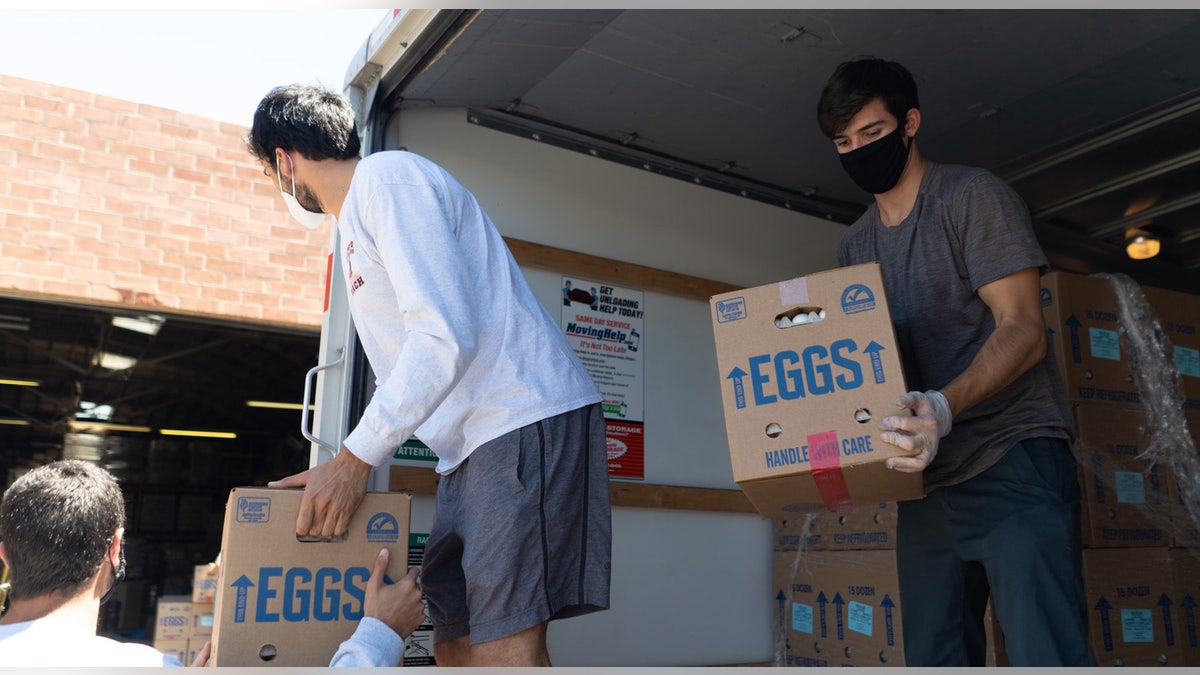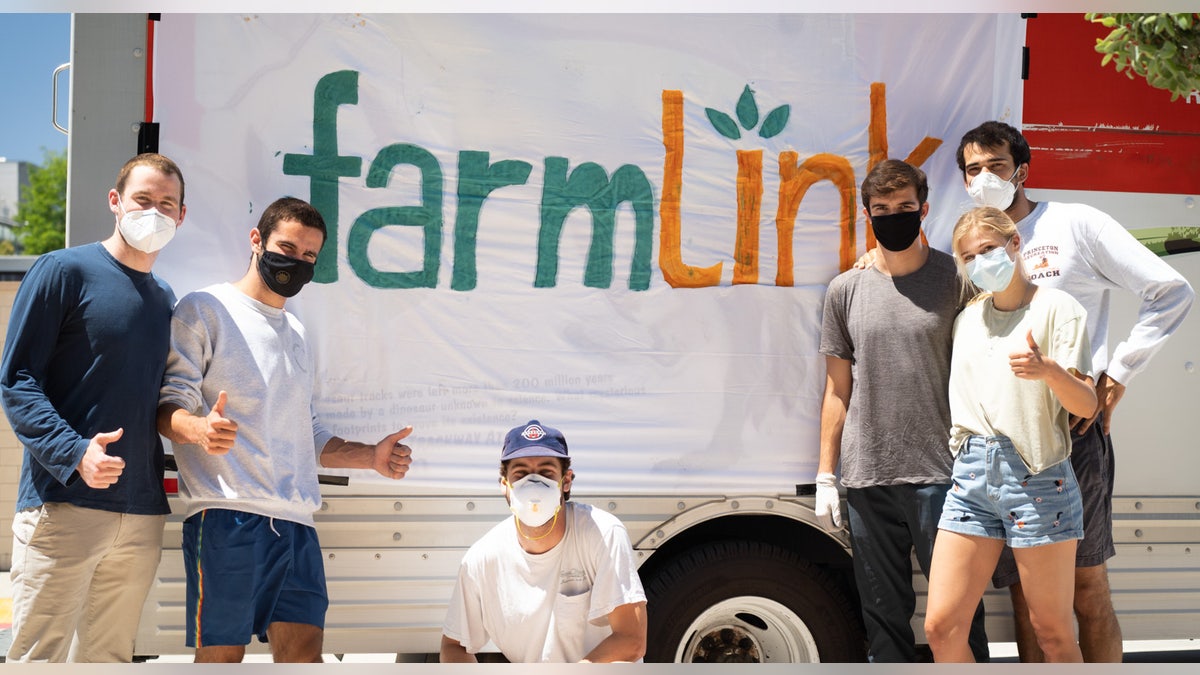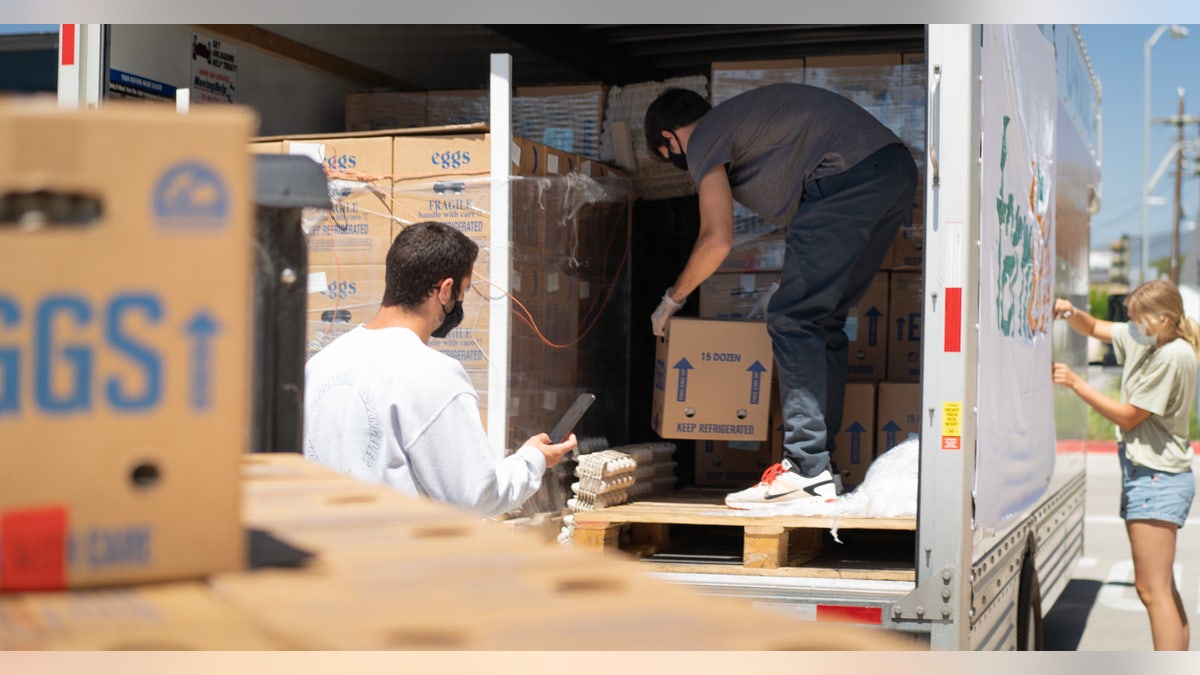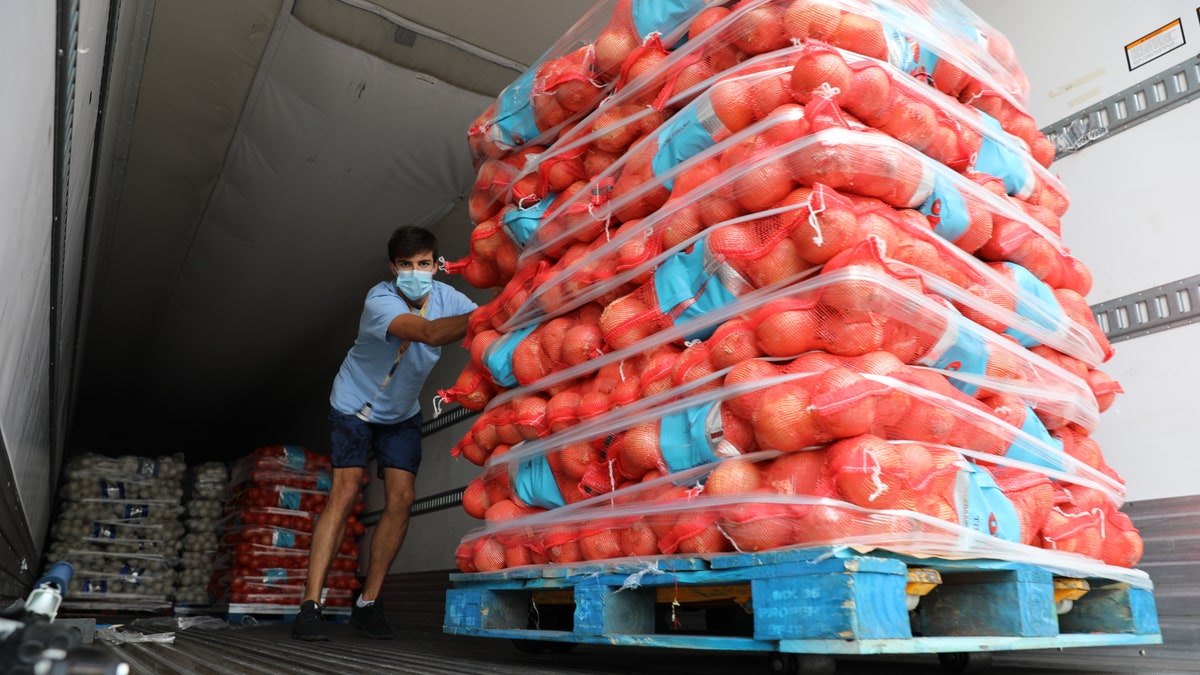College students bring surplus from farms to food banks
The FarmLink Project is seeking farms willing to donate their surplus produce to food banks struggling during COVID-19; William La Jeunesse reports.
Get all the latest news on coronavirus and more delivered daily to your inbox. Sign up here.
LOS ANGELES – A group of college students is delivering more than 100 tons of potatoes, onions, and eggs to food banks in three different states as part of a project to help farms whose food was going to waste because of the coronavirus pandemic.
The Farmlink Project, which began three weeks ago, fills a need of connecting farms saddled with surplus food from canceled restaurant contracts and reduced demand to food banks facing miles of cars and out-of-work consumers.

Members of Farmlink move a shipment of eggs from farms to three food banks in Los Angeles. (Courtesy of Owen Dubeck)
"It's been really amazing," Farmlink founder James Kanoff told Fox News. "There's been an outpouring of support of people volunteering and people donating, of people saying, 'I'll pick up a truck, I'll go pick up on the farm. I have extra produce.' We can't thank the farmers enough."
CLICK HERE FOR FULL CORONAVIRUS COVERAGE
Kanoff, a sophomore at Stanford University who is home for the summer, said they are trying to bridge the gap after food banks have seen a large increase in demand.
“Financially, farmers can't afford to pack these things and ship them off to the food bank. They're already struggling. They're not going to make any money this year,” he said. “They're worried about not having enough money to plant next season."
Kanoff added: "So, this food is just going to be left in the field or if it's the eggs, they're just going to smash the eggs. But if we can help offset the cost associated with transport, they're more than happy to donate."

A group of college students has teamed up to connect farmers with a surplus of product with needy food banks amid the coronavirus pandemic. (Courtesy of Owen Dubeck)
In addition to taking the farm products to the food banks, it is also raising money through its website to help field workers, truckers and farmers to feed families in need.
It has already paid out $2,500 raised from tax-deductible donations of $5 to $10. Organizers say 100 percent of donations are used to fight hunger and restore jobs during the COVID-19 pandemic.

A group of college students has teamed up to connect farmers with a surplus of product with needy food banks amid the coronavirus pandemic. (Courtesy of Owen Dubeck)
AMERICA TOGETHER: UPLIFTING IMAGES FROM ACROSS THE COUNTRY
On Tuesday, Kanoff and a few friends who attend college across the U.S. rented a truck, picked up 79,000 eggs at a distributor near Los Angeles, and delivered them to three food banks.
"There's not enough food to go around right now," said Joceyln Cortese of the Westside Food Bank. "They're filling a gap by providing this donated food that's fresh food and produce, which is what everyone needs right now."
Local farmers have always helped food banks but typically in small quantities as their product is on pallets and not boxed for consumers. Farmlink is helping fill the gap in logistics and packaging -- trying to match food grown in rural areas to food banks in urban areas that are experiencing unprecedented need.

A shipment of onions was delivered from farms to a food bank in need amid the coronavirus pandemic. (Courtesy of Aidan Reilly)
CLICK HERE TO GET THE FOX NEWS APP
The latest shipment of raw Idaho potatoes is going to Detroit, Los Angeles, and Wyoming.
"We have received hundreds of notes, emails, and comments," said Ben Collier, a student at Brown University who joined the project. "We've built a network of people across the country who want to participate in a multitude of ways."
He continued: "We are connecting farmers in Maine and North Carolina to a food bank in Washington, D.C. All the farmers we spoke to want to help but recognize they don't have the ability to connect past food banks in their area."























